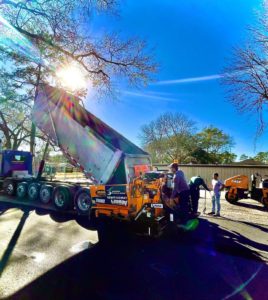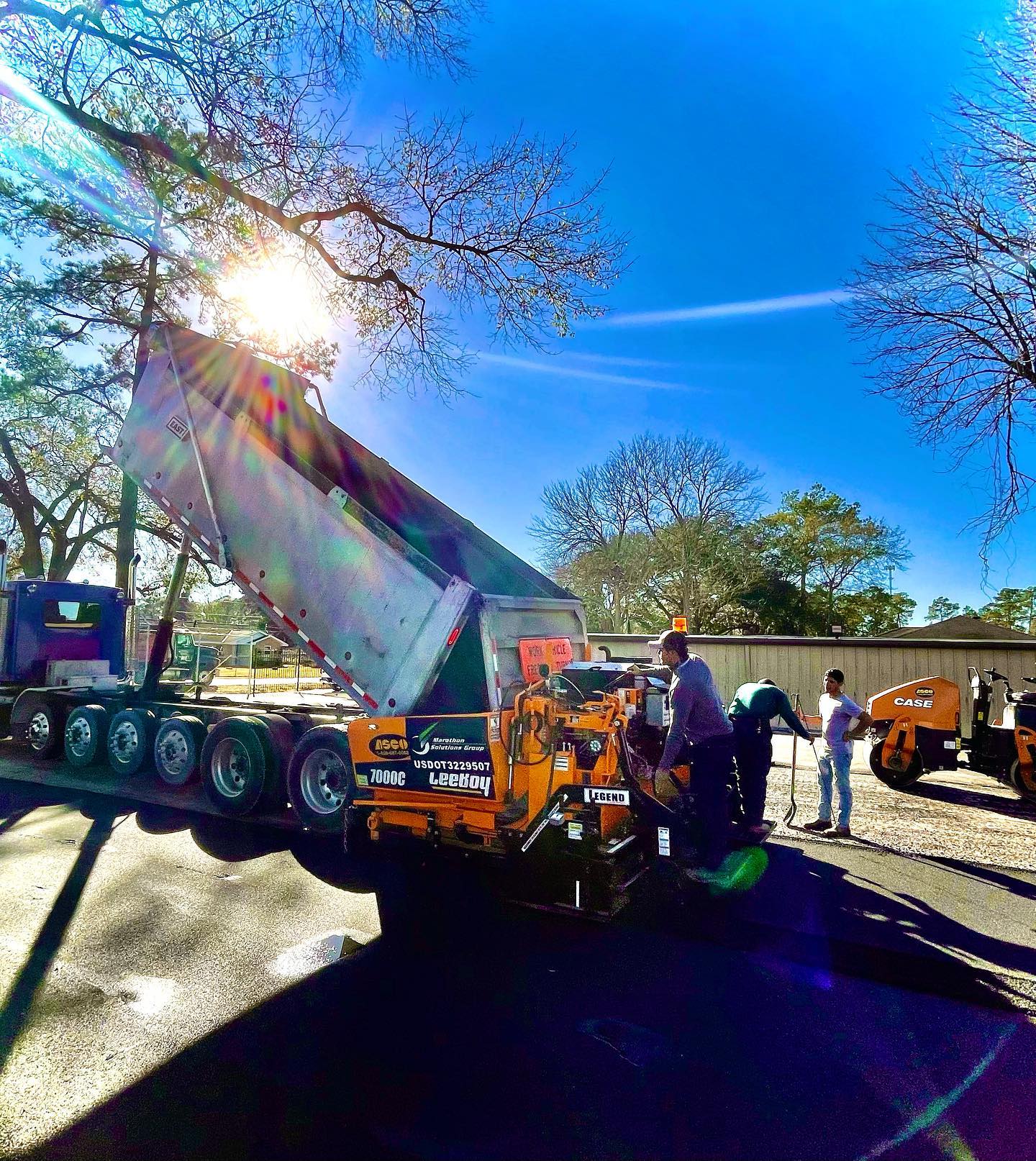
What Are Three Things I Should Not Do After a New Asphalt Paving Project?
1. Do not allow vehicles to drive or park on your new pavement for a minimum of 24 hours so that the asphalt has time to cure to the point that it can withstand the weight of traffic. Depending on the time of year, the type of asphalt mix used, the weather, and the thickness of the asphalt, curing could take a bit longer than one day. The asphalt company you hired to construct your pavement or install your overlay can tell you how long you should wait, so be sure that you follow your Houston asphalt paving contractor’s advice.
2. Do not call a pavement maintenance company to apply sealcoating as soon as your asphalt overlay or pavement is installed. Asphalt contains oils that need to be exhausted as part of the curing process. If these oils are trapped, the pavement could be weaker and softer than it would be if the oils had been allowed to escape. This can make your pavement more susceptible to imprints, cracks, and tire marks. When paving Houston properties, most asphalt contractors recommend waiting at least three months before sealcoating.
3. Do not ignore any minor damage that appears in your new asphalt overlay or pavement. If small holes or cracks larger than the width of a human hair develop, call a pavement maintenance company to repair them before they worsen.
What Are Three Things I Should Do After a New Asphalt Paving Project?
1. Remove oil, fuel, and other automotive fluids that have been leaked or spilled on your pavement. These petrochemicals can break down the binder holding the pavement together, leaving soft spots that can quickly become potholes. It is especially important to remove these spills and leaks during the time between the installation of the pavement and its initial sealcoating.
2. Water is one of the most formidable enemies your asphalt pavement can face, so watch for any signs that your new pavement is not draining properly. Puddles that remain on your pavement long after the rain ends, clogged gutters, and puddles around the grates covering your catch basins or drains can all be signs that you have a drainage issue. If you have a sprinkler system, adjust the heads so that they do not water your pavement.
3. Enforce the rules to prevent pavement abuse. Paving companies engineer pavements to support vehicles with certain weights, so if your pavement was designed for passenger vehicles, keep tractor-trailers, waste removal trucks, heavy equipment, and large recreational vehicles off of it. Post speed limit signs to discourage drivers from speeding, which can lead to hard braking and excessive acceleration.
Marathon Solutions Group, a Houston paving contractor, can provide you with everything you need to install, repair, and maintain your pavement. Our services include parking lot striping, asphalt overlay installation and paving, parking lot signage, line removal, thermoplastic markings, asphalt milling, bollard installation, asphalt crack repair, and sealcoating, and we also install and repair concrete. We have an unmatched reputation for exceptional craftsmanship and customer service. For a free quote, submit our request form online, call 800-879-1147, or email HQ@Marathon-Solutions.com.


